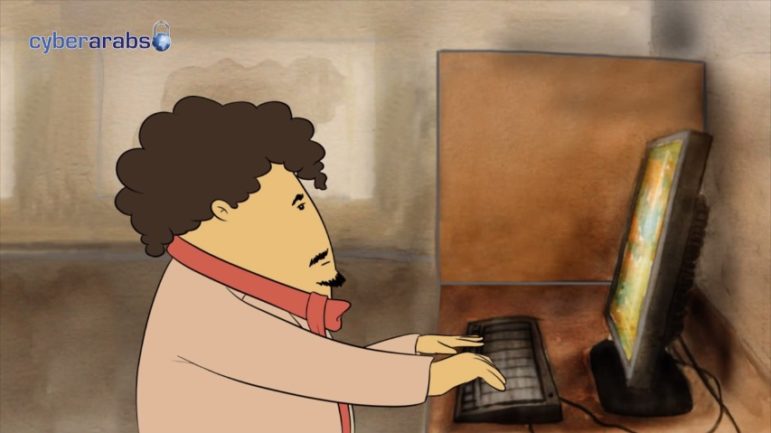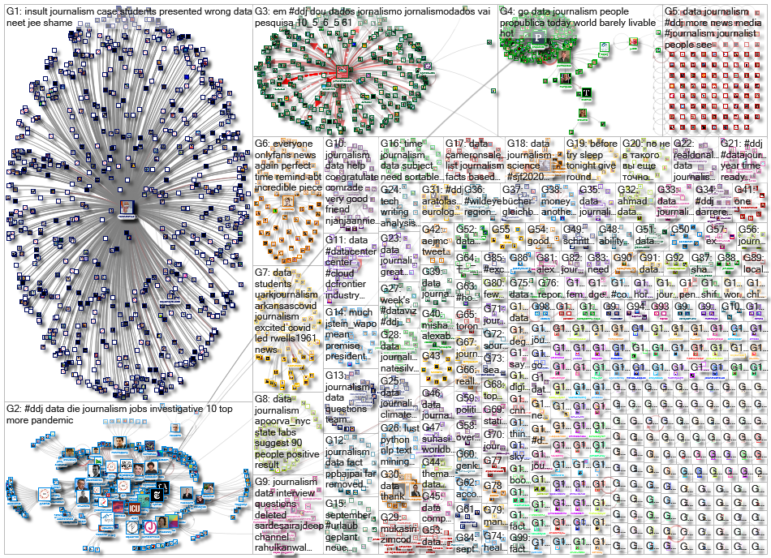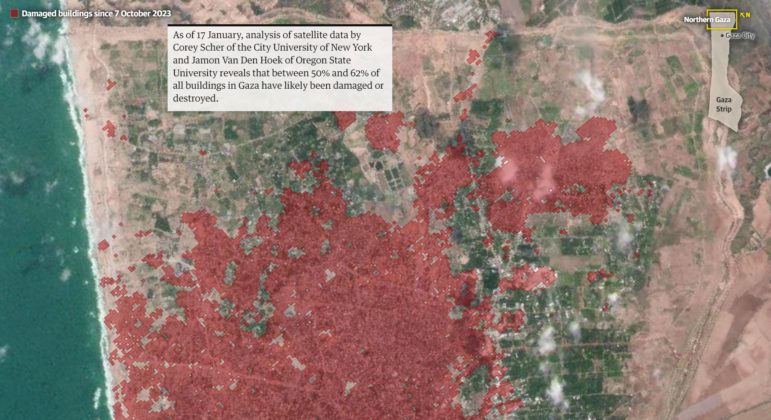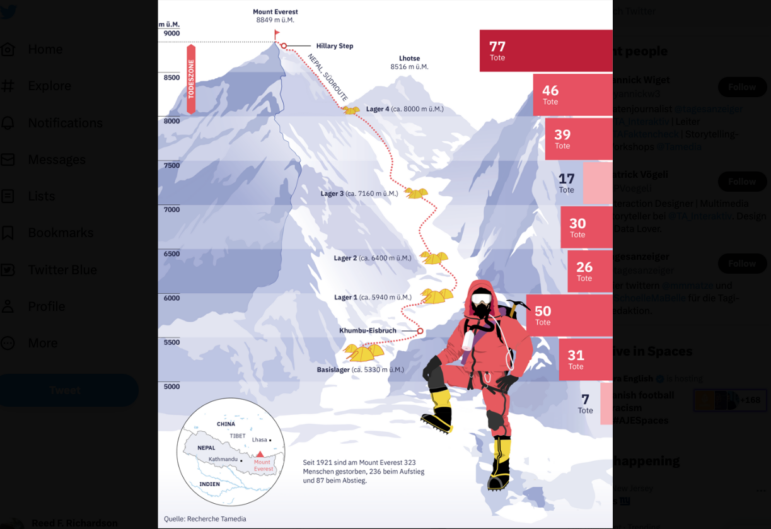Data Journalism Top 10: Tracking Police Accountability; Racism and Housing; China’s Hidden Prison Camps
The police shooting of Jacob Blake, a 29-year-old African American man, in the United States has reignited national unrest just months after the death of George Floyd. Our NodeXL #ddj mapping from August 24 to 30 finds ProPublica documenting police violence against Black Lives Matter protesters and tracking police accountability. The New York Times shows how the process of redlining, or denying mortgage finance to predominantly Black neighborhoods from the 1930s onwards, has resulted in heat disparities among cities, and BuzzFeed News uncovers scores of new internment camps in Xinjiang, China, by analyzing satellite data.
Tracking Police Accountability
ProPublica combed and analyzed hundreds of videos of police interactions with protesters in the US. It found 68 apparent examples of police using a disproportionate level of force against protesters. It also asked 40 law enforcement agencies whether there were any follow-up investigations or disciplinary actions taken against the police officers involved, and whether the agencies would disclose the identity of the officers.
Racist Housing Policy and Heat
In the 1930s, certain cities across the United States were classified as risky investments because the majority of the residents were Black. People in those neighborhoods were often denied mortgage finance as a result, a process known as “redlining,” and other investments were diverted away from those areas. The ripple effects of this decision can be felt in these neighborhoods today, which are poorer and have more residents of color — with these areas five to 20 degrees Fahrenheit hotter in summer compared to wealthier, whiter parts of the same city. The cause? Fewer trees planted and an abundance of heat-trapping pavements.
Uncovering Xinjiang’s Internment Camps
BuzzFeed News’ ingenious tactic of comparing blanked out parts of China’s mapping platform, Baidu Maps, with up-to-date imagery from Google Earth, the European Space Agency’s Sentinel Hub, and Planet Labs, revealed the location of scores of prisons and internment camps in Xinjiang, China. Read parts one and two of their investigation. Writer Allison Killing explains their reporting process in this tweet thread.
Charting the Risk of Travel
After months of staying close to home due to the pandemic, some people may be starting to feel a strong and irresistible impulse to travel. But which countries are safest to visit? Before you decide, check out German daily Der Tagesspiegel’s automated travel table. It tracks travel warnings for all countries worldwide, the number of new infections in each country, and the regions that are considered risk areas. You can also easily compare the level of risks among countries.
COVID Deaths in Care Homes Kept Secret
England and Scotland’s health regulatory authorities are refusing to make public data on which care homes or providers recorded the most COVID-19 related deaths. According to The Guardian, which cites replies it received to freedom of information requests, this is because regulators are worried that such transparency would prejudice the commercial interests of care home providers. BBC Scotland data journalist Marc Ellison also dug into this topic last month.
Coronavirus Testing Debate
The New York Times is highlighting concerns from medical experts that the standard coronavirus test in the US, which provides a simple yes/no answer to the question of whether a patient is infected, is inadequate to slow the spread of the virus. These tests may be diagnosing huge numbers of people carrying relatively insignificant amounts of the virus, contributing to bottlenecks in identifying people who are contagious. Experts suggest ramping up testing with tests that offer additional information, namely a rough estimate of the amount of virus in the patient’s body.
https://twitter.com/apoorva_nyc/status/1299705179877658629
The Evolution of Katy Perry
Brazilian news portal G1 analyzed an encyclopedia of the pop singer Katy Perry’s discography, something it has called a “Katypedia.” To chart the singer’s evolution and reinvention of her music over the years, it compared lyrics, “dancability” factor, and the sentiment contained in all her songs from the first album “Katy Hudson” to the most recent “Smile.”
Kyrgyzstan’s Political Musical Chairs
In Kyrgyzstan’s parliament, members of political parties are often united not because of party values, but by how well the party’s ideals align with their personal goals. This results in frequent defections by politicians to parties that better suit their private interests. RFE/RL’s Kyrgyz Service, Azattyk Media, analyzed the composition of the sixth Kyrgyz parliament and found that one-third of the reelected members had changed parties.
Mapping Historical Anti-Semitic Violence in Germany
Researchers at the Jewish Museum Berlin and the House of the Wannsee Conference, a museum focused on the history of the persecution of the Jews, documented 4,660 acts of violence against Jews, Jewish institutions, and companies in Germany from 1930 to 1938. Urban Complexity Lab created an interactive map of anti-Semitic attacks based on this data, and it was published by German daily Der Tagesspiegel.
Drug Market Adapts to Pandemic
The coronavirus pandemic has caused enormous damage to the economy and adversely affected many businesses. However, as László Arató reports for Hungarian news site Index.hu, the illegal drug market has apparently remained mostly unscathed as criminals are adapting quickly, changing their methods of distribution and payment transfers accordingly.
Thanks again to Marc Smith and Harald Meier of Connected Action for gathering the links and graphing them. The Top Ten #ddj list is curated weekly.
 Eunice Au is GIJN’s program manager. Previously, she was a Malaysia correspondent for Singapore’s The Straits Times, and a journalist at the New Straits Times. She has also written for The Sun, Malaysian Today, and Madam Chair.
Eunice Au is GIJN’s program manager. Previously, she was a Malaysia correspondent for Singapore’s The Straits Times, and a journalist at the New Straits Times. She has also written for The Sun, Malaysian Today, and Madam Chair.










